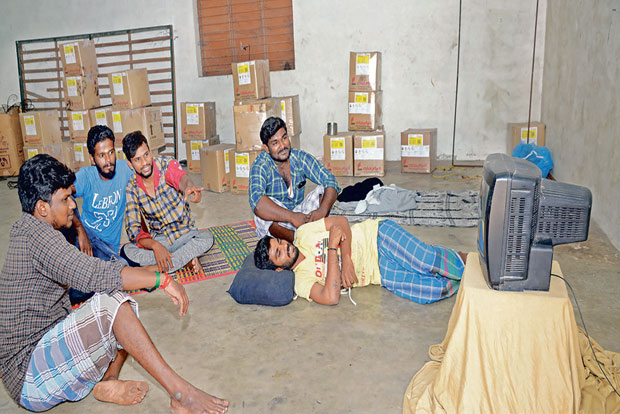Begin typing your search...
Right steps at right time: India Inc lauds new measures
The plans to reboot India to become a self-reliant economy came with the first tranche of relief measures being announced by Union Finance Minister Nirmala Sitharaman on Wednesday.

Chennai
Credit liquidity sops like collateral-free loans, statutory relaxations and tax benefits largely formed part of the booster dose aimed at kick-starting the pandemic-hit sectors such as micro, small and medium enterprises, realty and the non-banking financial companies. Industry captains, technocrats and new-age entrepreneurs sound upbeat about the future as they shared insights with DT Next.
Sridhar Vembu, Founder, Zoho, said the self-reliant India theme is a bold step towards the country developing deep technological capabilities domestically.
Endorsing the view is K Vaitheeswaran, Co-Founder, Again Drinks, who believes the COVID-19 crisis provides India a huge opportunity to reset the economy and become a bigger player in the global supply chains. “To achieve this, we need to think differently and not incrementally. Ten per cent of the GDP is a serious stimulus and e-commerce may benefit in several ways: The stimulus to help MSMEs will help millions of online vendors to survive, pick up their business, continue to enhance and manage their inventory better on online sites; the massive investments in infrastructure should help them in efficient goods transportation and the expected increase in more money in consumer’s hands (through may be some personal tax incentives) should result in more business on e-commerce platforms,” he told DT Next.
Senthil Natarajan, CEO, OpenTap, has a different take. “Someone, building a small 30-staff office in Chennai, would first fly to China, order basic things like furniture for their establishment, get it shipped and it still is cheaper than buying in India. A low estimate of trade deficit with China would be 50 bn dollars, whereas the GDP per capita of China is nearly five times ours. How does it make any sense for a country with 2,000 dollar GDP per capita?” he said. “Self-reliance doesn’t mean protectionism and isolationism is underlined by the fact that you make local but do go global.
Going by the trade deficit data and ‘well-known’ poor infrastructure in India, the focus seems to be on the right areas of using this pandemic to strengthen and reshape the core and financial infrastructure of the country,” the entrepreneur said.
Visit news.dtnext.in to explore our interactive epaper!
Download the DT Next app for more exciting features!
Click here for iOS
Click here for Android
Next Story



